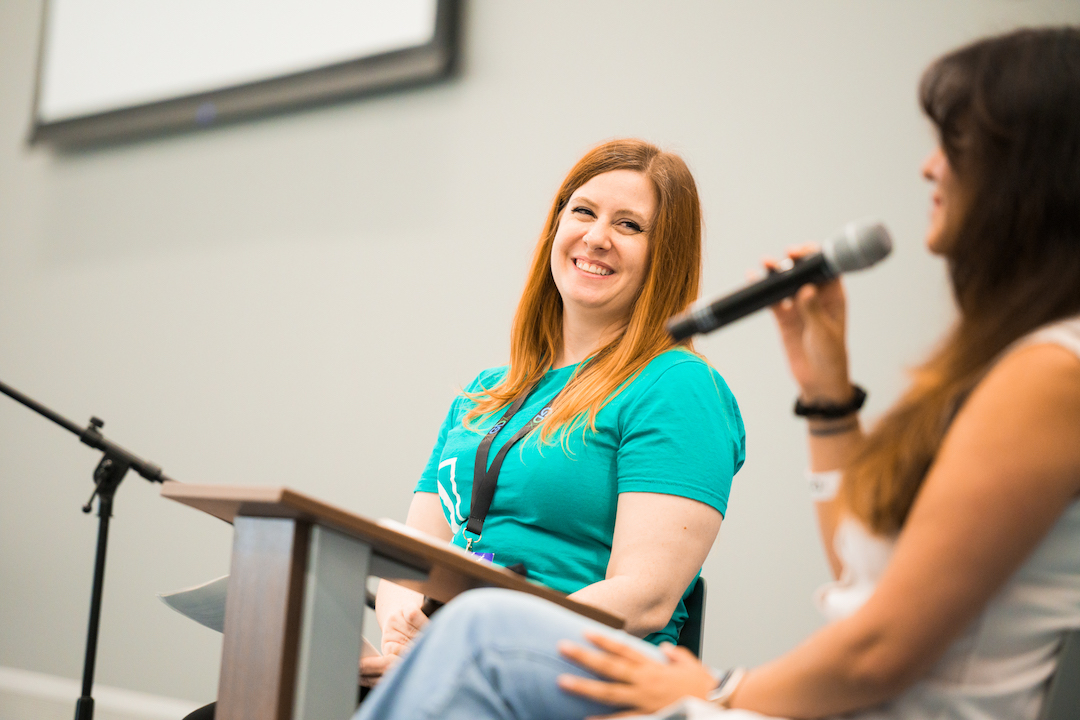
Game Discovery Exhibition adds new Indigeneity and diaspora summit
The organizer of the ninth annual Game Discovery Exhibition wants to celebrate more people in gaming with a new summit on Indigeneity and diaspora, one of two tracks that tackle equity, diversity, and inclusion in the industry during the conference portion of the event.
"When you're focusing two of your four summits on that EDI world and that lens, you really want to make room for the positive and to highlight the people behind things," Madison Côté, the executive director of GDX organizer Interactive Arts Alberta, told Taproot. The speakers, Côté said, are "folks who are very competent or very much industry thought leaders."
Interactive Arts Alberta has hosted GDX annually since 2015. This year's conference takes place at the Feltham Centre at NAIT, while an exhibition of game makers runs as part of KDays from July 19 to 28 inside the Edmonton EXPO Centre. GDX's mission is to raise the profile of indie gaming and to support it makers and fans.
One of its noteworthy local speakers is Aretha Greatrix, a member of Kashechewan First Nation who was born and raised in Edmonton. One of the many hats Greatrix wears is program director for Dreamspeakers Festival Society.
"She is a powerhouse of a human because she's a streamer, and she's a filmmaker," Côté said. "She's done actual advocacy work to YouTube Canada to get them more involved in National Indigenous History Month. As a streamer, she has also worked directly with some studios on their partner programs … I think we've convinced her to start thinking about making a game, too."
One out-of-towner coming to the summit is keynote speaker Rami Ismail, a Dutch-Egyptian developer, speaker, and toolmaker. Ismail has worked on more than 20 games and created presskit(), a free software that helps build publicity packages for games. He will discuss representation and business growth for indie gaming studios. Another is Kadeem Dunn, a founder of a studio called Diaspora Games that "focuses on the role that racialization plays in both the production and consumption of technology, media, and society at large," Côté said. Two more are Natalie Tin Yin Gan (顏婷妍) and Remy Siu 蕭逸南 of the interdisciplinary arts company Hong Kong Exile. Both work in gaming outside their shared company, too.
Stereotypes about gamers — they're white, cisgender, straight males who don't always play nice — do not respect the reality of the wider community, Côté said. Still, an attempt to revive the online harassment campaign aimed at marginalized people known as Gamergate earlier this year. Leaving people who don't fit this stereotype out of the conversation just doesn't make sense, Côté said.
"White males are only 33% of the gaming market," she said. "You're leaving a lot of people out by only telling (some) stories and only highlighting speakers from certain demographics."
Côté knows that not every conversation about Indigeneity and diaspora in games will be an easy one. She's thankful to have support on that front.
"Some of (the conversations at GDX) are going to be hard, for sure, and we've been really lucky to work with the Nîsôhkamâtotân Centre," Côté said in reference to the centre that is dedicated to supporting the Aboriginal student experience at NAIT. "They even offered to do some smudging."







